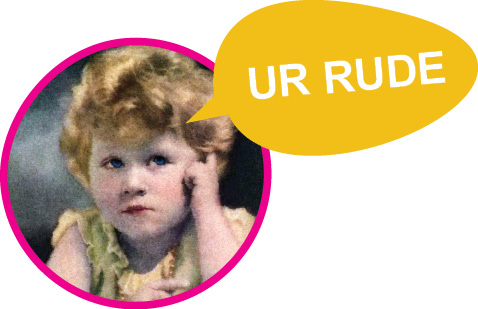By Assunta Ng
NORTHWEST ASIAN WEEKLY
 Queen Elizabeth II ranted about Chinese officials being “very rude,” before President Xi Jinping’s visit in London last year, in a private conversation with a police commander on May 10.
Queen Elizabeth II ranted about Chinese officials being “very rude,” before President Xi Jinping’s visit in London last year, in a private conversation with a police commander on May 10.
A pool cameraman recorded the conversation on the Buckingham Palace lawn. Lucy D’Orsi, the Gold Commander, was in charge during Xi’s state visit. D’Orsi was introduced to the queen at the palace’s garden party, according to the New York Times.
During the conversation, D’Orsi told the queen that the Chinese advance team preparing for Xi’s visit threatened to cancel the trip if Xi didn’t have an audience with the queen. At one point, D’Orsi told the queen that the Chinese officials also walked out on Barbara Woodward, British ambassador to China, during the negotiation for Xi’s trip.
The queen said, “They were very rude to the ambassador (Woodward).”
As a constitutional monarch, Elizabeth is prohibited from being actively involved in politics. She has earned a reputation for great discretion, and it is completely out of character for her to publicly criticize another country’s diplomats.
It is not clear if the queen knew she was speaking loudly enough to be recorded on tape.
Many have criticized the Chinese officials’ behavior as inappropriate and undiplomatic. Some have suggested that China lacks grace and finesse now that it is a super power and one of the richest countries in the world.
However, if you look at the whole picture in the context of Sino-British relations for the last 150 years, Xi’s visit did bring the two nations’ relations to a new dimension, despite the queen’s disapproval of Chinese officials’ actions.
Britain’s wars with China
It was Britain who forced China to open its door to opium trade in the 19th century. When China refused, Britain declared two wars on China, in 1839 and 1857. Using gunboat diplomacy, Britain won the war, and China had to sign “unequal” treaties, ceding Hong Kong to Britain, and paying a large indemnity.
The humiliation and shame brought about the Boxer Rebellion, a Chinese secret organization that led an uprising against Western and other foreign diplomats. In response, the Eight-Nation Alliance (including England, the United States, Japan, Germany, and France) invaded China, seizing lands and looting palace treasures. I was in London’s British museums and saw all the exquisite ancient Chinese art pieces, which Britain possesses — many of which came from that era of Sino-British conflicts. None of those rare pieces have been returned, even though the two countries claim that Sino-British relations are entering a “golden era.”
What would the queen say about all those old provocations and bullying? How about the vast quantity of opium exported to China, forcing it to legalize opium and thus contributing to an alarming number of addicts that led to the destruction of the wellbeing of society and the economy? Would the queen like to acknowledge what Britain has done to China in the past?
Given the historical context and implication for goodwill between the two countries, asking the queen to give an audience to President Xi and a historical visit wasn’t really too much to ask.
Everybody wants China’s business these days. Xi didn’t disappoint. He signed a nuclear power deal with the British during his visit, valued at $45 billion, a boost to Britain’s economy.
Chinese officials are known to be demanding during negotiations. Their toughness focuses mostly on one thing — not losing face. Over the years, the state of Washington and Washington, D.C. have experienced similar encounters with China, according to those who have worked behind the scenes in preparing for the Chinese president’s visit. None of the U.S. officials have made that public because they focused on the positive results of Xi’s visit, which benefited China, the United States, and Washington state.
Yet, the queen chose to express the negative, and her comments were made public.
I was raised in Hong Kong during the British colonial rule. As a child, I thought the British were far more superior than the people of Hong Kong. The British got better government jobs and higher pay than the local Chinese. No one dared to question the system and its unfairness.
Some have suggested that the British should get credit for its work in transforming Hong Kong, from a barren piece of rock into a busy port and bustling economy.
Who got the benefits from 1842 to 1997 when Hong Kong was under British rule? Not China. Britain was the sole beneficiary for Hong Kong’s tax revenue for over a century, as it was one of the most prosperous colonies in the British Empire.
The queen is not used to negotiating Chinese-style. And she probably thinks that being 90 years old, she has earned the right to speak her mind. Likewise, the Chinese have earned their prominence in global politics, and the rest of the world should recognize China on the world stage, and respect it.
Assunta Ng can be reached at assunta@nwasianweekly.com.


